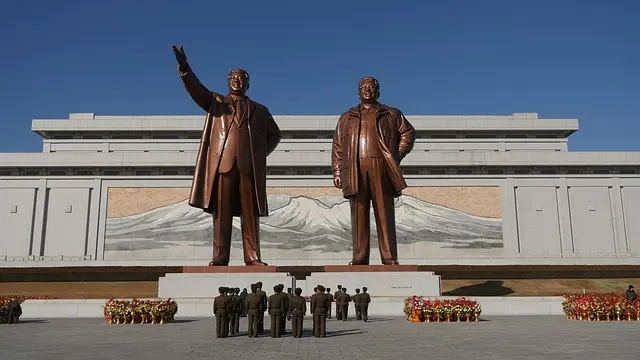Symbolische keerpunten zijn cruciaal om het Westen oorlogen in te zuigen. In januari 1999 doodden Servische veiligheidstroepen 25 dorpelingen in Ra¿ak. Er hadden meer van dit soort wandaden plaatsgevonden, maar deze leidde tot een houding van tot-hier-en-niet-verder waardoor de discussie over een Navo-interventie in Kosovo in een stroomversnelling kwam.
Twaalf jaar later, in februari 2011, brachten vermeende slachtpartijen in Benghazi de interventie van de Navo in Libië een stap dichterbij. En nu speelt hetzelfde na de slachtingen in Houla en nabij Hama in Syrië.
In alle gevallen koos het Westen op grond van morele redenen de kant van de opstandelingen. Maar in alle gevallen speelde diezelfde oppositie een dubieuze rol. De moorden in Ra¿ak volgden op een bewuste provocatie van de Kosovaarse bevrijdingsbeweging UÇK die vlak daarvoor vier Servische politiemannen had vermoord.
In de aanloop naar de interventie in Libië schetsten de opstandelingen een achteraf gezien weinig realistisch beeld van de verschrikkelijkheden. In juni 2011 constateerde Amnesty International dat er geen bewijzen waren voor massamoorden en de inzet van vliegtuigen tegen onschuldige burgers en dat de protestbeweging niet echt vreedzaam was. Dat Syrische veiligheidstroepen en pro-Assad milities de slachtingen van Houla en Hama op hun geweten hebben lijkt zeker. Maar ook nu sijpelen berichten door over de dubieuze, uitlokkende rol die de oppositie heeft gespeeld.
Een belangrijke les die uit de geschiedenis kan worden getrokken, is dat de lijn tussen goed en fout dunner is dan Westerse politici, media en publiek zichzelf wijsmaken. Maar voor Westerse politici is morele verontwaardiging de belangrijkste motivatie om tot interventie op te roepen. Feiten en kennis over conflictdynamiek doen in de mobilisatie van steun voor hun interventieplannen niet ter zake. Dus riep de kersverse Franse president Hollande monter op tot actie. Maar ook in de Verenigde Staten en het Verenigd Koninkrijk begint het langzaam te schuiven. Zelfs VN-secretaris-generaal Ban Ki-moon vond het tijd voor hardere actie. Door aan te dringen op interventie manoeuvreren politici zichzelf in een positie waarin non-actie een non-optie wordt, ongeacht de risico’s voor de lokale bevolking of de stabiliteit van de hele regio.
Dat is ernstig, want de volgende les is dat verreweg de meeste slachtoffers tijdens een interventie vallen en niet ervoor. Bombardementen veroorzaken ongewenste nevenschade en tijdens die bombardementen voeren beide partijen de strijd op. De heersers hebben niets te verliezen en de oppositie ruikt met steun van buiten de overwinning.
Gek genoeg lijken China en Rusland het westerse interventionisme nu te remmen. Onder meer omdat ze zelf met rebellen binnen hun landsgrenzen kampen, hebben ze een klassieke opvatting van soevereiniteit en non-interventie. Bovendien weten ze dat alleen door keihard optreden de stabiliteit van het land gewaarborgd kan worden. Hun visie wordt bepalender. Want de laatste les is dat het in de internationale betrekkingen om het recht van de sterkste draait. Westerse moraliteit en interventionisme waren een afgeleide van onze machtspositie. Dat die door de financiële crisis dramatisch is ondermijnd, hoeft geen betoog.
Trouw





